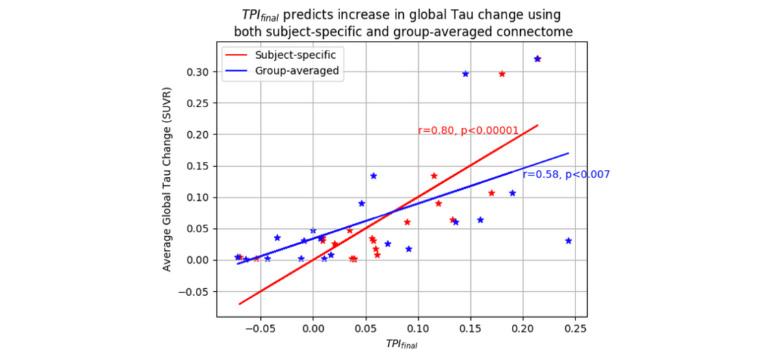
Alzheimer’s disease (AD), the leading cause of dementia, is on the rise, with U.S. cases estimated to reach 13 million by 2050, according to the Alzheimer’s Association. Despite advances, much remains unknown about AD, namely, why disease severity and progression vary among subjects with similar burdens of Amyloid-beta (Aβ) and tau, two key neuropathological AD markers. This presents challenges for patients, families, clinicians, and researchers.
Given these challenges, the National Institute on Aging, an NIH institute, recently awarded a $4 million grant to Ray Razlighi, Ph.D.; Tracy Butler, Ph.D.; and Gloria Chiang, M.D.: “Tau Progression Index (TPI): An individualized predictor of Alzheimer's Disease trajectory based on subject-specific connectomes.”
"Everyone's brain is uniquely wired with a distinct structural and functional architecture, or human connectome fingerprint,” says Dr. Razlighi. “Using this personalized brain connectome and the existing spatial pattern of AD pathologies, we aim to predict the future tau accumulation, subsequent neurodegeneration, and cognitive impairment, marking a significant step toward personalized medicine for Alzheimer’s disease."

Figure: Preliminary data shows a significant improvement in prediction accuracy by using the personalized brain connectome
The proposed TPI score will provide a personalized, quantitative biomarker to predict tau progression, helping to monitor tau spread for accurate disease prognosis, assess the effectiveness of therapeutic interventions, and counsel families on disease prognosis.

